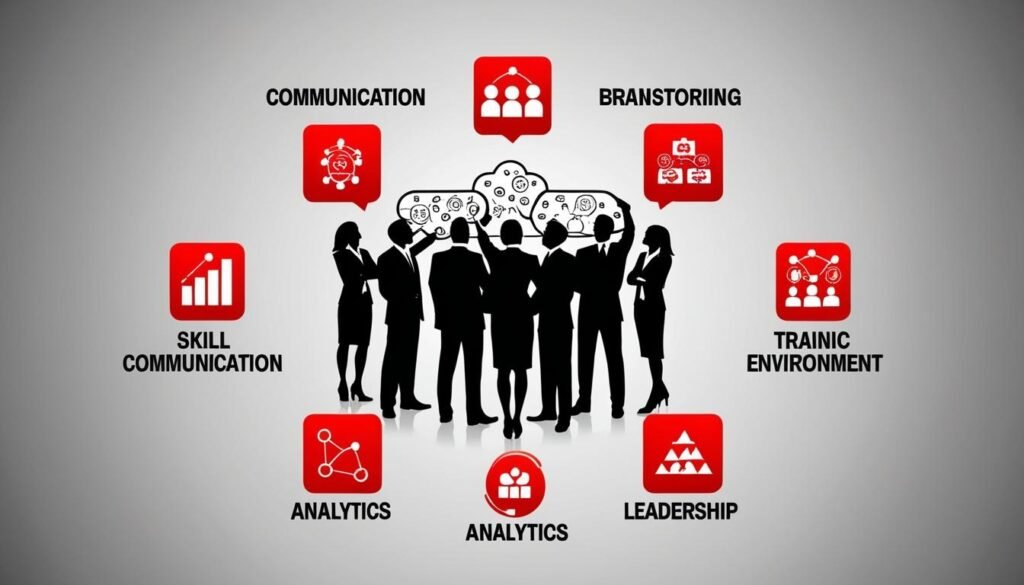As 2025 budgets are finalised, marketing leaders confront a skills gap crisis, prompting a shift towards nurturing talent through training initiatives.
As budgets for the year 2025 are being finalised, marketing leaders are confronted with a significant challenge characterised by limited resources and an ever-widening skills gap within their teams. The competition to secure specialised talent is becoming fiercer, prompting industry experts to advocate for a shift towards cultivating a training culture as a viable strategy to bridge essential skills gaps and drive sustained success.
Ed Gordon, the author of “Winning the Global Talent Showdown,” remarked on the crucial link between talent and technology by stating, “You can have all the latest technology you want, but if you don’t have the talent behind it, your business is not sustainable.” This sentiment resonates deeply with findings from the 2024 Randstad Enterprise Talent Trends Research report, where marketing and creative leaders identified two primary challenges: a 34% increase in competition for hard-to-find skills and a 32% decline in the availability of specialised skills. The research underlines the fact that the widening skills gap is a global threat to business sustainability, with data analytics being highlighted as a primary area of concern, alongside deficits in soft skills such as communication and leadership.
The current challenges underscore the necessity for organisations to transition towards a skills-based approach to workforce management. According to the MarTech report, businesses that adopt this strategy are 79% more likely to provide a positive workforce experience, and 63% are more likely to achieve desired results compared to organisations that maintain a traditional role-based structure. It is estimated that replacing a single employee can cost up to twice their annual salary, while adequate training can be achieved for an approximate investment of $5,000.
To initiate this transition, companies need an aligned culture that emphasises training and retraining employees. The goal is to nurture individuals’ full range of skills, capabilities, and motivations, and to leverage them across various roles and projects. By focusing on potential rather than solely on experience, companies can enhance their resilience, competitiveness, and overall profitability. However, shifting from a role-based to a skills-based mindset can prove challenging, particularly in environments where entrenched practices favour job titles and qualifications.
Internally, only one-third of organisations currently have mobility programmes conducive to staff development, leaving only 20% of employees feeling secure about their prospects for advancement within their organisation. To facilitate a successful shift, companies may need to start by prioritising on-the-job training and embedding time for skill development into their annual planning processes. This may include identifying specific areas of need and developing mentorship programmes for focused skill sets, for instance, human-machine interaction or prompt engineering training.
The organisation-wide cultural change towards continuous improvement and skills development necessitates a narrative that frames skilling as an investment rather than a cost. Establishing key performance indicators (KPIs) to assess the impact of new skills on company performance can prove beneficial for planning future resources.
Marketing leaders must take an active role in defining the skills that will be essential for their operations and evaluating the capabilities of their current workforce. Collaboration with human resources departments is essential to ensure that the particular talent needs of marketing are met through effective recruitment and retention strategies.
As the landscape of marketing continues to evolve, the call for organisations to invest in their existing talent base has never been more pressing, placing a premium on the development of skills that will enhance long-term business success.
Source: Noah Wire Services
- https://www.cmswire.com/the-wire/new-report-highlights-dramatic-digital-marketing-skills-gap-impacting-organizations-globally/ – Corroborates the significant skills gap in digital marketing, particularly in areas like data analytics, SEO, and digital strategy, and highlights the need for continuous learning and development.
- https://www.cmswire.com/the-wire/new-report-highlights-dramatic-digital-marketing-skills-gap-impacting-organizations-globally/ – Supports the global threat of the widening skills gap to business sustainability and the importance of addressing it through enhanced training and strategic hiring practices.
- https://www.cim.co.uk/content-hub/blog/key-skills-for-your-marketing-cv-in-2025/ – Highlights the critical skills gap in the marketing industry, especially in analytics and data, and the need for continuous investment in training to stay competitive.
- https://www.cim.co.uk/content-hub/blog/key-skills-for-your-marketing-cv-in-2025/ – Emphasizes the importance of skills such as AI marketing, SEO, and social media, and the divide between strategic and tactical digital marketing skills.
- https://www.marketingprofs.com/charts/2024/52103/b2b-marketing-budgets-spend-and-priority-trends – Provides context on marketing budget trends and priorities, including the importance of martech and the expectation of budget changes in 2025.
- https://reusser.com/insights/blog/4-factors-to-determine-your-marketing-budget-2025 – Discusses the reduction in marketing budgets and the need for strategic investment to ensure marketing dollars are used efficiently.
- https://www.cmswire.com/the-wire/new-report-highlights-dramatic-digital-marketing-skills-gap-impacting-organizations-globally/ – Supports the recommendation for a multifaceted approach to address the skills gap, including enhanced training, strategic hiring, and fostering a culture of continuous learning.
- https://www.cim.co.uk/content-hub/blog/key-skills-for-your-marketing-cv-in-2025/ – Highlights the need for marketing leaders to define essential skills and collaborate with HR to ensure talent needs are met through effective recruitment and retention strategies.
- https://www.cmswire.com/the-wire/new-report-highlights-dramatic-digital-marketing-skills-gap-impacting-organizations-globally/ – Corroborates the impact of the skills gap on business performance and innovation capabilities, emphasizing the need for immediate action to address these challenges.
- https://www.cim.co.uk/content-hub/blog/key-skills-for-your-marketing-cv-in-2025/ – Supports the necessity for organisations to transition towards a skills-based approach to workforce management to enhance resilience, competitiveness, and profitability.
- https://www.cmswire.com/the-wire/new-report-highlights-dramatic-digital-marketing-skills-gap-impacting-organizations-globally/ – Highlights the importance of establishing key performance indicators (KPIs) to assess the impact of new skills on company performance.


